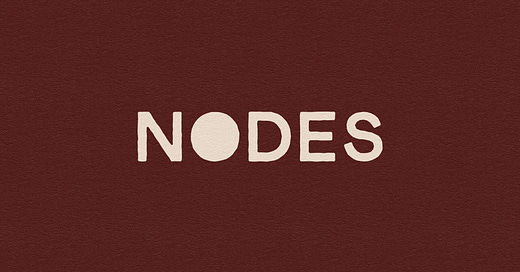Community Wisdom features intimate conversations with accomplished angel investors, distilling their most profound insights into focused stories. Every two weeks, we dive deep into one key lesson that shaped their investment journey.
Meet the investor
Matthew Roberts is an active angel investor who began his journey back in 2017. To date, he’s backed 32 early-stage startups. Through building investment communities and working with numerous founders, he's developed a particular interest in the human elements of early-stage investing.
The power of a principled no
Staring at his screen one day, Matt found himself crafting yet another carefully worded "maybe" response to a founder. The realization hit him: he was becoming exactly the type of investor he used to hate. "When I was trying to fundraise, I wanted a hard yes or a hard no. I didn't like maybes. I found they were very distracting, and I wasted a lot of time on people who had maybes that were really nos."
Unclear responses weren't just wasting founders' time–they were consuming his own. "I knew deep down I wasn't going to invest in them. So who am I fooling here? I'm fooling myself more than anyone." Nobody likes to be strung along with good intentions.
Now, Matt practices delivering a “no” quickly, whilst maintaining a high degree of thoughtfulness. This approach frees both parties to focus their energy elsewhere.
Matt’s not arguing to defend your time at the cost of good faith with the founder community—how you deliver your “no” is everything. There’s nothing more frustrating for founders than reaching a dead-end with no idea how you got there, or direction on how you can improve.
When declining an investment opportunity, lead with constructive transparency but acknowledge the limits of your perspective. "I always caveat my message by saying 'I'm not a guru, I'm likely wrong, these are just my opinions", Matt explains. The most effective nos combine clear reasoning with humility–be upfront about your specific reasons for passing, whether it's lack of excitement about the space or personal capital constraints, but recognise that founders typically know their domain far better than you do. And therefore, acknowledge that you might be wrong.
The key is to ground your response in your personal beliefs and experiences rather than common consensus. This approach maintains the founder's dignity while still providing actionable feedback.
For emerging angel investors, the process of saying no in a thoughtful way can be as valuable as making investments. "When you really challenge yourself on getting to a no, and you're doing the groundwork to get there, you're thinking through the opportunity, you're deploying critical thinking, you're approaching things from multiple angles," Matt explains. "When you have to write down your no in a couple of paragraphs and explain to a founder why you're saying no and stand behind that no, you learn so much more." Weak nos are the result of poor thinking—don’t be lazy.




